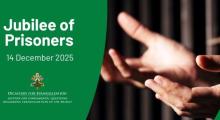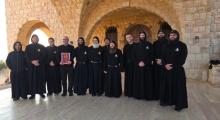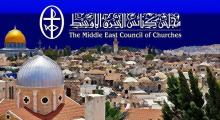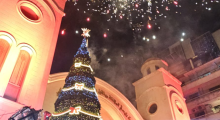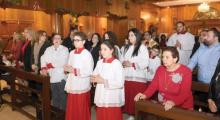Issued by the Catholic Center for Studies and Media - Jordan. Editor-in-chief Fr. Rif'at Bader - موقع أبونا abouna.org
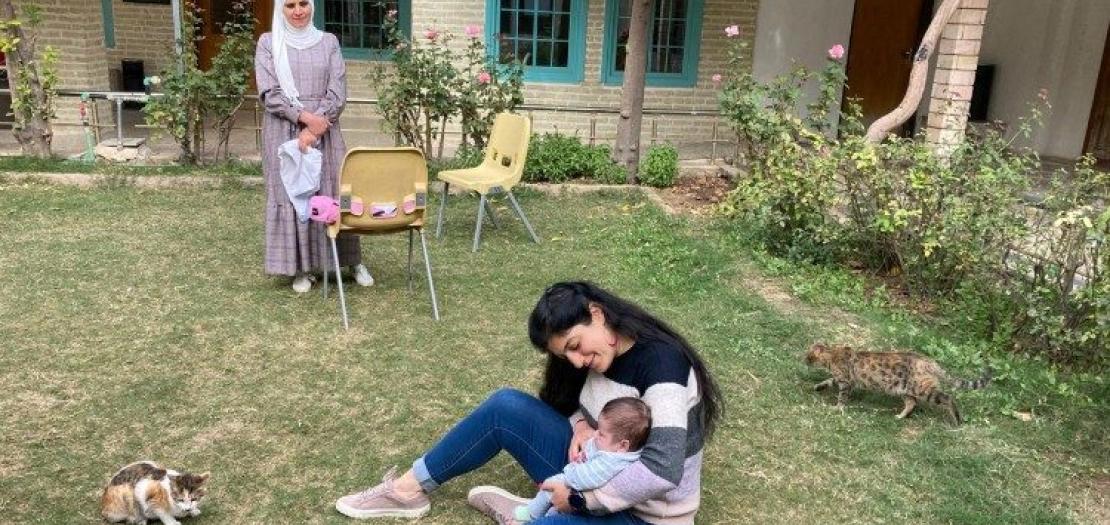
The Monastery of the Virgin Mary in Sulaymaniyah
When, in the mid-1990s, Jens Petzold first arrived in Syria, it was only supposed to be a temporary stop on his journey eastward from his native Switzerland. An agnostic and spiritual seeker, his real goal was East Asia, where he hoped to explore Taoism and Zen Buddhism.
While in Syria, Petzold heard talk of the desert Monastery of Mar Musa. Dating back to the fifth or sixth century AD, it had recently been re-opened by the charismatic Italian Jesuit Paolo Dall’Oglio, who had dedicated it to Muslim-Christian dialogue. Petzold decided to pay a visit and was instantly enthralled.
“At the time, I had no idea that Christians were capable of taking another religion seriously, without looking down on it,” Fr. Petzold tells Vatican News. “I liked that a lot.”
Eventually, after several stays at Mar Musa, Petzold decided to be baptised there. Shortly after, at the end of 1996, he entered the monastery as a novice.
Arrival in Kurdistan
A decade of service at Mar Musa followed. And then, in 2010, Archbishop Louis Raphael Sako—then Chaldean Archbishop of Kirkuk, now Patriarch of Baghdad—asked the community to open a monastery in Iraq.
Petzold was one of the Mar Musa monks sent to Iraq to give life to the project, and he has been there ever since.
Today, he is the head of the monastery, which is located in Sulaymaniyah, in the Kurdistan region of northern Iraq. As well as Fr. Petzold—now an ordained priest in the Chaldean Catholic Church—the monastery is home to Sr. Friederike Gräf from Germany, a fellow member of the Mar Musa community.
The monastery also has six or seven full-time employees, who help run its various projects. It hosts language courses—teaching Kurdish to Arabs, Arabic to Kurds, and English to both groups. It also runs programmes on topics like leadership and decision-making and serves the pastoral needs of the tiny local Christian community. And, like its parent monastery of Mar Musa in Syria, the monastery in Iraq is actively involved in promoting Muslim-Christian dialogue.
Interfaith work and peacebuilding
“In Iraq, the lines between the different communities are much more pronounced than in Syria,” Fr. Petzold explains. “In Syria, I would often see students of different religions taking trips together, for example. That happens a lot less in Iraq.”
For this reason, Fr. Petzold says, he initially had his doubts as to whether the Mar Musa mission of promoting interreligious understanding would be as successful in Sulaymaniyah as it had been in the Syrian desert.
But, he continues, “I was standing in the monastery’s church one day, and I realised that most of the women coming in to light candles in front of the icon of the Virgin Mary were Muslims.”
“That’s when I realised that this could work out.”
All of the monastery’s projects contribute to the goal of promoting interfaith relations, Fr. Petzold notes. Around 2,000 to 3,000 people visit the monastery each year to take part in its courses, and very few of them are Christians.
But the Swiss priest thinks that the monastery’s biggest contribution is likely the informal encounters that it facilitates.
“The main aim is just to get people to meet and discuss,” he says. “Drinking tea together is probably much more effective for peacebuilding than having long discussions about human rights.”
“That's my personal conviction,” he says, and laughs: “It's much more difficult to shoot at somebody once you’ve drunk a good cup of tea together.”
The local church: constant departures, new arrivals
As well as encouraging deeper understanding between religions, the monastery in Sulaymaniyah aims to serve the local Christian population.
After it first opened, a major focus was helping Christian refugees who had arrived in Kurdistan. Many were fleeing the ISIS takeover of northern Iraq, others the instability caused by the Syrian civil war. At the height of the refugee crisis, 255 displaced Christians were living in the monastery.
Of these, only three or four families remain today, Fr. Petzold says. Somewhat fewer than half have returned to their homes, and around a third have moved abroad.
This means that the makeup of the local Christian population has changed dramatically. Christianity has deep roots in the region, and local Christians are traditionally Arabic-speaking.
Today, as more and more Arab Christians leave to seek their fortunes abroad, they are being replaced by Christian migrant workers from further east in Asia, and certain countries in Africa.
“They bring their families with them,” says the Swiss priest, “and so one day, these migrants will be the new local Christians. It’s our job to serve them.”
Seeds of hope
Much of the work that happens at the monastery, Fr. Petzold says, has to do with the desire to “give a future to the young people here.”
“I'm very much interested in working with young adults,” he says. “They have a lot of energy, and they still have a lot of hope. Sometimes, I watch the discussions they have here, the way they try to solve problems together, and I hope that, perhaps one day 15 years in the future, they might remember those discussions, that spirit of working together.”
Given that the interview is taking place as part of Vatican News’ “Seeds of Hope” project for the 2025 Jubilee Year, we asked Fr. Petzold whether he sees the monastery’s work as contributing to the unfolding of a more hopeful future.
“I don’t know if we’re a ‘seed of hope,'" he says. "Our aim is to help the people we work with discover that seed inside themselves.”


